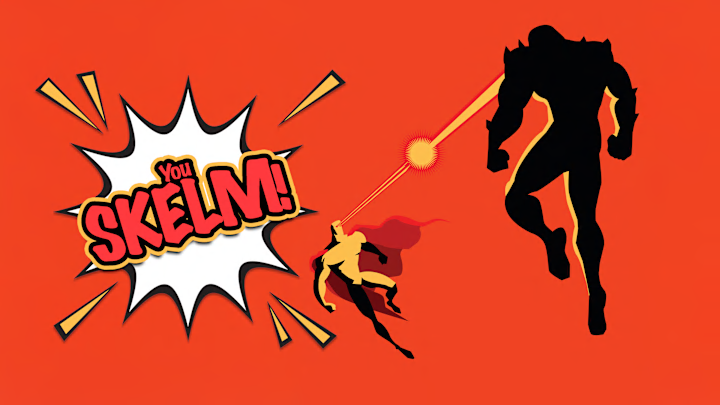Whether you’re watching a movie or reading the news, it’s hard to avoid villainous, heinous, wicked behavior—but we all could use a few new words for the diabolical. Fortunately, there are plenty of older words ready for a revival. Please consider using the following out-of-fashion terms the next time you talk about the deplorable deeds of Dr. Doom, Dr. Evil, or that guy down the street who always walks his dog without a leash.
Facinorous
The Oxford English Dictionary’s definition leaves little to the imagination: “Extremely wicked or immoral; grossly criminal; vile, atrocious, heinous; infamous.” This Latin borrowing was big in the 1700s but has faded in use since then, though it has spawned a few amusing derivatives. In George Borrow’s 1841 book The Zincali, he wrote that Constantine the Great “condemned to death those who should practise such facinorousness.”
Mixship
Mixship is a rare, old word for a villainous deed. If mixship seems opaque, that’s because it sprang from an Old English sense of mix that disappeared a long time ago: Mix was a word for dung or other filth. So calling something a “mixship” was like saying “What a total pile of crap!” or “That’s BS” today.
Repudious
Repudious was first used back in the mid-1500s as a word for anything rejection-worthy, in particular the vile and villainous.
Skelm
As far back as the early 1600s, a skelm was a villain or other rascal. The word comes from a German term that could refer to various awful things and beings, including the devil and a pestilence. By the 1600s, skelm was also being used as an adjective, like in a 1673 mention by English poet John Dryden of the “Skellum English.”
Derf
Derf is an adjective and adverb that first referred to boldness around the late 1100s, but by the 1400s, it had taken on a sense of boldness that is evil. Not much has been described as derf for a few centuries, and a comeback is unlikely. Anything rhyming with Nerf doesn’t sound very evil or bold.
Gallows
Gallows is well-known as a noun, but began appearing as an adjective in the 1400s for miscreants presumed to deserve it.
Nineted
This term, first found in the late 1700s, is equal parts wickedness and mischief. John Palmer, in his 1798 novel Like Master Like Man, used the term in a sense that suggested incorrigibility: “So prone to mischief, that his supposed aunt declared, ‘it was beyond her to manage him—he was a nineted one’.” The etymology is uncertain, but it could be a variation of benighted, which has a wonderful OED definition: “Overtaken by the darkness of the night; affected by the night.” That definition could also apply to Batman.
Flagitious
The OED traces this word back to the Bible, and it’s fitting it may have originated in a book concerned with sin—it refers to people who are guilty. A 1796 book called An Apology for the Bible contains this memorable sentence: “You will have annihilated in the minds of the flagitious all their fears of future punishment.”
Nitheful
Since the days of Old English, someone who is nitheful has been wicked.
Mislived and Unperfect
The slightly euphemistic word mislived provides a subtle way of saying, “Wow, are they ever vile and wrong and offensive.” It has been used in relation to wicked behavior since the 1400s and turns up in Chaucer. A similarly understated word is unperfect, which has had many senses but referred to sinful wickedness from the late 1300s on.
Discover More Old Words:
A version of this story ran in 2016; it has been updated for 2024.
